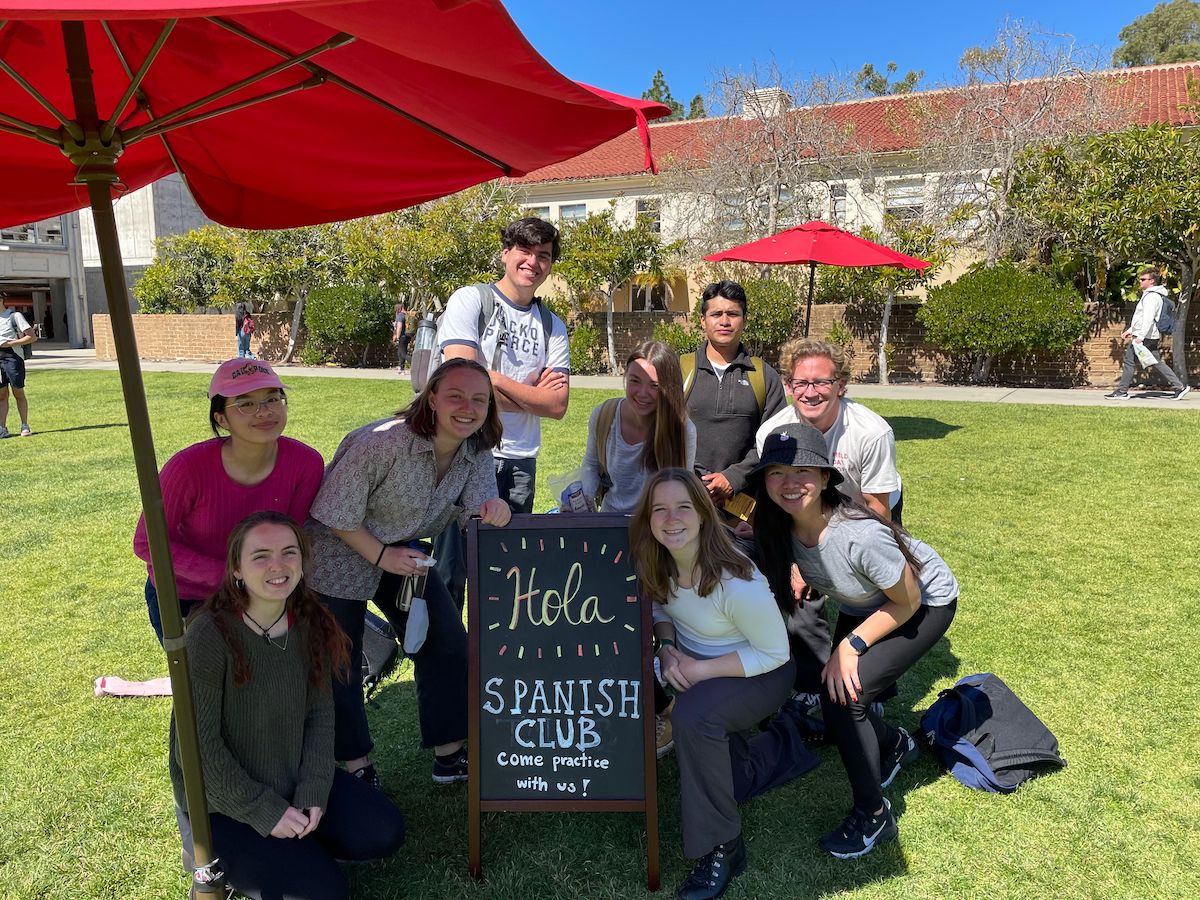Faculty host conversation tables for students to practice foreign languages

Cal Poly offers many language courses, but not only that, there are foreign language conversation tables where students can learn, practice or converse with others.
“The idea behind a conversation table is when students are learning a foreign language, they can have an opportunity to practice their conversation skills,” history professor Maggie Bodemer said.
Bodemer is a lecturer in Cal Poly’s history department and organizer of the Vietnamese conversation table, which she started in 2015. Vietnamese is a language not offered at Cal Poly, so the Vietnamese conversation table gives students an opportunity to learn a new and less commonly taught language, Bodemer said.
“I had some students taking a seminar in Southeast Asia and a few of them were planning to travel to Vietnam, and they wanted to learn some Vietnamese,” Bodemer said. “After that, I had a couple of Vietnamese-American students who approached me and wanted to continue it.”
The foreign language conversation tables are often organized by faculty members outside of their scheduled work hours.
Hart said that Cal Poly feels like a very English-only campus to some students and there is a large multilingual student population on campus that tends to be forgotten.
“I think that [the faculty hosting language tables] is just really amazing and necessary,” Hart said. “We’ve got to be doing more to both promote language diversity, so that our students can graduate with not only language, but also the awareness of how to use that language in a culturally competent way.”
Business administration junior Victoria Tsinker is the president of the Russian Student Association (RSA) and works in collaboration with her advisors to schedule the Russian conversation table, another language not currently offered at Cal Poly.
“I love [the Russian conversation table] just because I call my parents … and my grandparents a couple times a week, but it’s often not enough for me to maintain my Russian speaking ability at the level that I want it to be at,” Tsinker said. “It’s really nice just being able to come in and just talk.”
Anyone is welcome to join these tables regardless of their language proficiency level. Students who attend range from beginners to native speakers.
“Oftentimes, we have people coming in who are fully fluent from Russia … and [other] people who come in and they simply want to learn or develop whatever Russian that they have,” Tsinker said. “And then sometimes, we have people coming in who have never heard Russian in their life and they just want to hear [what] it sounds like.”
Other conversation tables that are currently being held are German and Italian. Previously, there were French and Japanese conversation tables.
“I think it’s really important that we’re working together to hold space to increase visibility and ultimately, to better support our colleagues, students, faculty and staff because I think that we do have a really rich tapestry,” Hart said.
This article origionally appeared on MustangNews.net.

